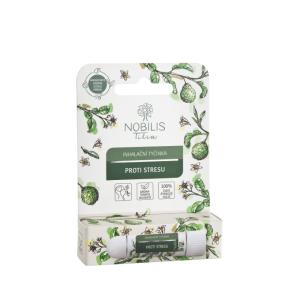
How to Gain 10 kg in a Month and Maintain Quality Mass

How to Healthily Gain 10 kg in a Month?
Gaining weight can be as challenging for some people as losing weight is for others. Although it may sound surprising, there are individuals who try for years to gain a few kilos without achieving visible results. While the internet is full of guaranteed tips for quick weight gain—such as "how to gain 10 kg in a month"—the reality is somewhat more complex.
Before embarking on an intensive weight gain program, it's essential to ask a few important questions: Is such a pace healthy? What does it entail? And how to gain quality mass, not just fat? The answers are often not straightforward.
What Does It Mean to Gain 10 kg in a Month and Is It Even Healthy?
The idea of being able to gain 10 kilograms in a month is tempting, especially for those who are underweight, recovering from illness, or aiming to gain muscle mass. In practice, this means consuming an average of 800–1000 kcal more per day than one expends, over 30 days. While this is not unrealistic, it often leads to undesirable results—particularly a rapid increase in fat tissue.
From a health perspective, the recommended pace of weight gain is roughly 0.5 to 1 kg per week, which corresponds to about 2–4 kilograms per month. Gaining more is possible but usually requires a combination of a very precise diet, strength training, and good genetic disposition.
No one wants to gain weight quickly only to deal with bloating, loss of energy, or impaired digestion. Therefore, it makes sense to approach weight gain as responsibly as a healthy reduction of body fat.
Quality Weight Gain
Weight can be gained in various ways—some may resort to fast food, sugary drinks, and calorie-dense meals, while others choose a balanced diet with sufficient proteins, complex carbohydrates, and healthy fats. The difference between these approaches is crucial, even though the scale might show similar results.
Quality weight gain means gaining primarily muscle mass, not fat. This requires not only a higher caloric intake but also consistent strength training and sufficient recovery.
An example is Ondřej, a 24-year-old medical student who lost weight due to illness, dropping to 60 kg at a height of 180 cm. After recovering, he decided to regain weight and aimed to reach 70 kg within a month. He began exercising regularly, increased his caloric intake from 2300 to 3500 kcal per day, ate every 2–3 hours, and consistently slept 8 hours a day. The result was 6 kg more in a month, mostly consisting of muscle mass. Reaching the +10 kg mark would have been possible but at the cost of more fat and stress on the metabolism.
What to Eat to Gain Weight?
Increasing caloric intake is essential. But the quality of calories is key. The goal is not to indulge in empty sugars but to find a balance between taste, nutritional value, and energy density. Foods that are suitable for gaining weight while also promoting health include:
- Nuts and seeds – ideal as a snack or in porridge and salads
- Legumes – beans, lentils, chickpeas are not only nutritious but also rich in proteins
- Avocado and coconut – sources of healthy fats that provide energy without unnecessary sugars
- Full-fat dairy products – cottage cheese, Greek yogurt, cheeses
- Quality vegetable oils – olive, flaxseed, or pumpkin seed oil are suitable for salads and baking
- Whole grains – oats, barley, buckwheat, rye
- Plant-based meat alternatives – tempeh, tofu, seitan
To these foods, it is good to add easily digestible carbohydrates (e.g., sweet potatoes, rice, whole grain bread), which provide the necessary energy. It is important to eat regularly and plan meals—spontaneous weight gain often ends in frustration.
Training is Key – Without It, You'll Only Gain Fat
Gaining weight without exercise means that most of the increased energy will be stored as fat. If the goal is to gain weight healthily and shape the body, it is necessary to include strength training at least 3–4 times a week. It supports muscle growth, improves insulin sensitivity, and helps utilize consumed calories more effectively.
It doesn't have to be professional bodybuilding workouts—basic exercises with body weight or dumbbells, such as squats, push-ups, pull-ups, or shoulder presses, are sufficient. Consistency and gradually increasing the load are crucial.
However, regeneration plays an equally important role. Without enough sleep and rest, muscles won't have time to recover, and weight gain can slow down.
Common Mistakes When Trying to Gain Weight
Many people try to gain weight but overlook crucial details. The most common mistake is not tracking intake—people think they are eating enough, but they are still in a slight caloric deficit. Another common mistake is relying on unhealthy food—it may lead to weight gain but often at the cost of impaired digestion, fatigue, or acne.
A special chapter is stress. It not only slows down appetite but also increases cortisol levels, which can hinder muscle growth. In the long term, weight gain turns into a vicious cycle where the body merely survives instead of building mass.
Try our natural products
Do Supplements Help?
The market offers a variety of supplements to support weight gain—from plant-based protein blends to so-called "gainer" products that combine carbohydrates and proteins. These can be useful, especially for very active people or those with a fast metabolism who find it challenging to eat a large volume of food.
But no product can replace real food. Supplements should be just that—a supplement—not the foundation of the diet. A much better choice is to prepare a nutritious smoothie at home with banana, nut butter, plant milk, and protein, rather than relying solely on powders and drinks from a box.
How Long Does It Take and What to Expect?
It is realistic to gain 4–6 kilograms per month if one eats consciously, exercises, and recovers well. Gaining 10 kg in a month is possible, but it will usually mean an increase in fat tissue, which may not be desirable. More important than the number on the scale is how one feels—having more energy, strength, better mood, and sleeping more peacefully.
Results also vary according to body constitution, genetics, and lifestyle. Therefore, it is not advisable to compare oneself with others—everyone has a different starting point.
As sports coach Pavel Samek said: "The body is not a machine. We cannot apply one equation to it and expect the same results. It responds to what we give it—energy, movement, sleep, stress. And when we give it the right conditions, it rewards us."
In the journey to gain weight, it is not only important to eat but also to maintain overall balance and respect one's own body. Whether the goal is to gain 5, 10, or 15 kg, the crucial thing is to do it healthily and with a good feeling.


